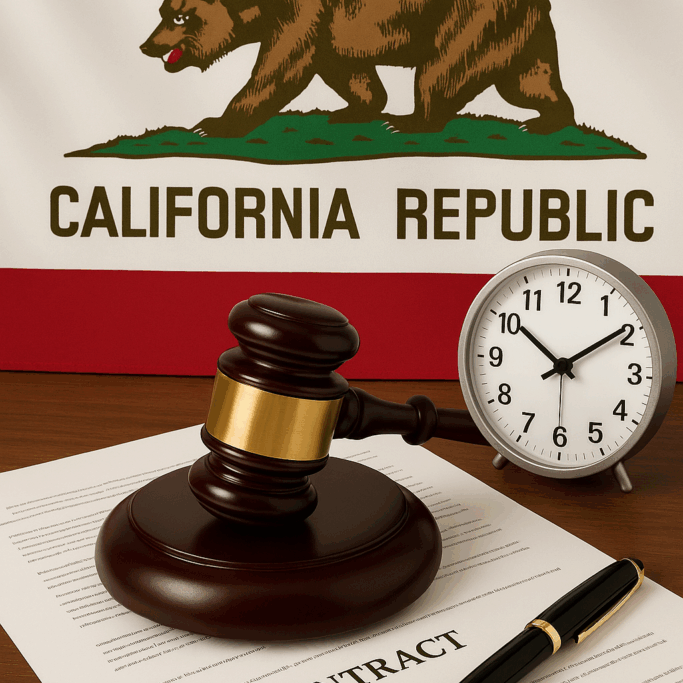Insights < BACK TO ALL INSIGHTS
Cal. High Court Softens Draconian Arbitration Fee Rule
Cal. High Court Softens Draconian Arbitration Fee Rule
By: Robert Ward
California law has often tested just how much room the Federal Arbitration Act (FAA) leaves for states to regulate consumer arbitration agreements. Last week, in Hohenshelt v. Superior Court,[1] the California Supreme Court determined that at least one claimant-favoring provision of the California Arbitration Act (CAA), California Code of Civil Procedure § 1281.98 comes close to, but does not cross, that line. At the same time, to avoid preemption, the court offered businesses some relief from the unforgiving interpretation applied by many California courts.
Section 1281.98 requires the party who drafts an arbitration agreement—in the consumer context, the company—to pay all required fees within thirty days of receiving the arbitration provider’s invoice.[2] If the company fails to pay the fees by this deadline, the statute imposes severe consequences. First, it deems the company to be in material breach of the arbitration agreement, in default of the arbitration, and to have waived its right to compel arbitration of the particular dispute. Second, it permits the claimant to withdraw the claim from arbitration and proceed in court. Third, if the claimant proceeds in court, it allows the claimant to seek recovery of all fees and costs associated with the abandoned arbitration, regardless of the merits of the underlying claim.[3]
For years, California courts have strictly interpreted section 1281.98’s timely payment requirement. Intermediate appellate courts have concluded that companies waived their right to compel arbitration where a payment check was mailed before but received two days after the relevant deadline,[4] or, in one case, where counsel was “caught in the throes of a natural disaster” and payment was six days late.[5] Companies have argued, mostly without success, that because this strict payment requirement applies only to arbitration agreements, it violates the FAA’s requirement that state law place arbitration agreements on equal footing with all other contracts.
While the California Supreme Court refused to conclude that the FAA preempts section 1281.98, it nevertheless provided some measure of relief for companies who might find themselves faced with an arbitration demand in California. To start, the court rejected the draconian “no exceptions” approach in favor of the more forgiving background principles applicable to all contracts. In particular, the court noted that the California Civil Code excuses a failure to perform obligations where, for example, the party has not acted willfully, fraudulently, or with gross negligence, or where performance would be impossible, illegal, or impracticable because of “extreme and unreasonable difficulty, expense, injury, or loss involved.”[6] The Court also analyzed the legislative history and concluded, that the California Legislature was concerned about willful nonpayment, not a company’s excusable neglect or good faith, but ultimately unsuccessful, effort to pay on time.
While this decision provides some measure of relief, it still may subject companies to undesirable litigation over whether a particular delay was willful or not. Still, the decision provides a helpful reminder that companies can draft arbitration agreements to give themselves some breathing room by including a provision that overrides the CAA’s default rule for timely payment.[7] Companies that provide services to California consumers should take note, and consider updating arbitration provisions to require the arbitration provider to issue invoices with a due date of, for example, 30 days after receipt. By doing so, companies can give themselves some breathing room to consider how best to respond to an arbitration demand.
Companies should also recognize that while the California Supreme Court has spoken, it may not have the last word. A strong dissent by Justice Corrigan suggests that there are still good reasons to think that the FAA preempts section 1281.98, even under the court’s more forgiving interpretation.[8] Because preemption is a question of federal law, federal courts remain free to adopt the dissenting view in Hohenshelt. A company threatened with forfeiture under section 1281.98 in federal court should also consider arguing both that any delay in payment was excusable and that the FAA preempts the statute for many of the reasons set out in the dissent. While Hohenshelt shut the door on those arguments in California state courts, they may still persuade federal courts that even the softened version of section 1281.98 falls short of according arbitration agreements the equal treatment that the FAA requires.
[1] — P.3d —, 2025 WL 2302229 (Cal. 2025).
[2] California Code of Civil Procedure § 1281.98
[3] Id. § 1281.98(a)(1)–(c).
[4] Doe v. Superior Ct., 95 Cal. App. 5th 346, 350 (2023)
[5] Colon-Perez v. Security Indus. Specialists, Inc., 108 Cal. App. 5th 403, 409–410, 413, 421, n. 12 (2025).
[6] See Hohenshelt, 2025 WL 2302229, at *7–8 (discussing Cal. Civil Code §§ 1511, 3275).
[7] Id. at *14.
[8] Id. at *25 (Corrigan, J. dissenting) (noting that even accepting the majority’s harmonization of the statute, it still impermissibly enacts a presumption that time is of the essence in all consumer and employment arbitration contracts); see also Belyea v. GreenSky, Inc., 637 F. Supp. 3d 745, 760–61 (N.D. Cal. 2022) (noting that absent “time is of the essence” clause, slow payment is not usually a breach under general principles of California contract law).





